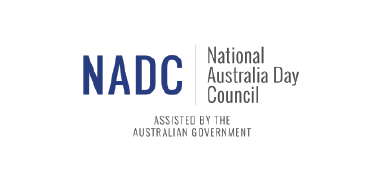Australia Day Address 2011 by Sir Michael Parkinson CBE
Michael Parkinson was born in 1935 in Cudworth, near Barnsley, and was educated at Barnsley Grammar School. His early journalistic experience was gained on several local newspapers in Yorkshire and then The Manchester Guardian until he became a feature writer with The Daily Express in London.
Transcript
My association with Australia started the day I was born. Upon being told my mother had given birth to a baby boy, my father said he would like to add another name to the agreed Michael. He said he wanted to celebrate a recent event in Australia where England had won a test match. Therefore he would like me baptized, Michael Melbourne Parkinson. My mother, aware she was married to a cricket tragic, said she too had been thinking about another name. Her choice would be Gershwin to commemorate her love of movies starring Fred Astaire and Ginger Rogers by celebrating the composer of some of the great music they danced to. Fortunately, they agreed that the chance of bringing up a child named Michael Gershwin Melbourne Parkinson in a pit village in Yorkshire without incident might prove a problem. So they changed their mind, and thank the lord they did.
Though I wasn’t to know it at the time it was also my introduction to a man - my father - whose entire life, whose very soul and being was dedicated to two loves, his family and cricket and who, if asked to choose between the two, would have to give the matter some serious thought. His prime ambition was to sit on the hill at Sydney and watch England beat Australia, and the greatest puzzle life held for him was not the mystery of our existence but the fact that Don Bradman had a batting average twice that of my father’s hero, Len Hutton. My father had a theory that Australians were a breakaway tribe of sunburnt Yorkshire men. This observation was based entirely on the way the Aussies played their cricket – tough, aggressive, fiercely competitive and without compromise. Therefore I grew up believing that Australians were, at the very least, distant cousins.
The first Aussies I came into contact with were journalists. As a conscripted teenage soldier I found myself in charge of a group of reporters covering the Suez invasion in the 1950’s.
These were proper journalists, battled scarred, grizzled war correspondents, not un-razored wannabes like the soldier supposedly looking after them. The most impressive was a fabled Australian called Ronnie Monson. When General Sir Hugh Stockwell, the officer in charge of the invasion force, organized a party to meet the media, Ronnie turned up wearing twice as many medal ribbons as the General. He had reported wars long forgotten, he had also been one of the first journalists to witness the horrors of Belsen Concentration Camp. I looked upon him with a mixture of awe and envy. He was the kind of journalist I wanted to be. I wondered if I would measure up, given the chance. I was soon to find out.
I started my career in television in the late 1950’s at Granada in Manchester where the head of current affairs was an Aussie, Tim Hewat. He was to play a significant part in my television career, as well as giving me my first insight into the egalitarian ways of Australia. Well, he and Meb Cutlack that is. Meb was an Australian reporter with a very direct style. One he day he had to ring Lord Hailsham, a Tory Grandee to try and secure an interview. He asked me how he should approach the politician. “With caution” I advised. I explained Lord Hailsham was an eminent QC called Quinten Hogg who was not renowned for his love of the fourth estate. I said Meb should observe the formalities. He picked up the phone and called Lord Hailsham. Somehow, he got straight through. “G’day Quint.” he said. There was an appalled silence in our office. But Meb got his interview. It was also rumoured he took tea with Quinten Hogg, who no doubt wanted to inspect at close quarters this representative of a strange and plain speaking tribe hitherto unknown to the noble lord.
For someone brought up to conform to the strict boundaries of class and privilege in post war Britain; to feel inhibited, shackled even, by the limitations imposed by accent, education and the fact of being a miner’s son; for this person to encounter fellow human beings to whom none of these things mattered at all, was a joyous revelation. Indeed I think I truly fell in love with Australia when years later I watched the then Prime Minister, Paul Keating, put his arm around the Queen. Those who believed it was a terrible lapse of protocol, that Mr Keating should be sent to the Tower and tried for treason, completely missed the point. Mr Keating wasn’t being disloyal, he was merely reaching out in friendly gesture, as one human being to another. In doing so he was demonstrating a point made by Enid Lorimer a wonderful old actress I interviewed on my first trip to Australia.
Miss Lorimer was born in Victorian England and came to Australia where she had a distinguished career. She was in her 80’s when I interviewed her, and she talked about how refreshing it was that Australians rebuked the class system that had governed her life in Britain. She said what attracted her most to her adopted country was the lack of snobbery. “We British invented the word ‘snob’ the Australians don’t know what it means.” She added: “I think snobbery is a form of cruelty, a combination of cruelty and pride. That is why I love Australia because here we are all human beings”.i It is that classless aspect of Australians we find so attractive and enviable. So much so we love reminding you that however free you think you are you still constitutionally, pay allegiance to a monarch who isn’t Australian and doesn’t live here. The Barmy Army taunts you by singing to the tune of ‘Yellow Submarine’, “Your next queen is Camilla Parker-Bowles”, or “God save your noble Queen”. The Australian Republican movement could do worse than sign the Barmy Army and its song book to provide the soundtrack to their next campaign for change. And change there will be, the only question is when.
But back to Granada Television and Tim Hewat. Tim was an audacious Australian who has his own place in the history of British Television. His singular achievement was a programme called ‘World in Action’, a revolutionary concept, at the time, whereby he eliminated the on camera reporter and relied instead on good pictures and a vigorous script. He was a tough boss. I was once filming a messy war in Cyprus when he rang to order me and my film crew to Zanzibar to report a revolution. “Do you know how far Zanzibar is from Cyprus?” I said testily. He said “ I just measured it on the map. It is about 2 inches.
Shouldn’t take you long.” We were arrested and imprisoned in Zanzibar until they kicked us out, driving us around freshly dug graves before taking us to our rescuers. I was interviewed on the news when I returned to England which led to me being employed to work in front of camera. So I owe my TV career as a performer to an Australian producer who didn’t believe in them.
The irony of the situation did not escape Tim. Many years later when I was working in Australia for the ABC, and Tim had retired to a farm near Melbourne, I called him and arranged a reunion. We had not met for 10 years or more. He came to my hotel for a drink. In my room he spied the list of questions for the talk show I was preparing. Without being invited he picked it up and began reading. When he had finished I asked him what he thought. “Crap guest, crap interview” he said. He wasn’t being unpleasant, and I was not upset. In Hewat’s world the only way to tell a story was his way.
My relationship with Tim helped me to survive the time I came here to work in the late 70’s. In those days the most daunting prospect of arriving in Sydney was the airport press conference. The first question I received: “Is it true you are coming to Australia because you can’t get a job in England?” In my hotel room I switched on the radio just in time to hear the host of a phone in programme describe me as a ‘carpet bagger’. Far from being disconcerted, I was reassured by the fact that Australia seemed to be full of Tim Hewats. The fact was I felt at home. The hospitality of the locals was appealing and comforting. Mark Twain, who also fell in love with Australia, had it exactly right when he described it as: “English friendly with the English shyness and self-consciousness left out”.ii
At that time the country was still feeling the aftershocks of the constitutional crisis, and big beasts like Bob Hawke, Paul Keating and others were prowling. These men and more besides were to shape Australia’s political future by challenging the old guard, while up in Queensland Joh Bjelke-Petersen began to look more and more King Canute. In his obituary the Sydney Morning Herald described his role in Queensland as showing “almost total disregard to parliament, the bureaucracy and convention”.iii I interviewed Joh and Kerry Packer who presented what can only be described as a sense of almighty clout. He was, without doubt, one of the most influential Australians of them all, not simply by the power he wielded with his media empire but because he changed forever and fundamentally the game of cricket.
Now I know a lot of you will have been wondering when I was going to mention the great game, and the fact we retained the Ashes and beat you 3 – 1. The answer is I don’t really know how I held back for so long. I have no wish to crow or be triumphant, indeed the only reason I introduce the subject now is because anyone who thinks cricket is merely a game, and the Ashes just another sporting contest, understands nothing about the relationship between Australia and the mother country. In many ways cricket defines that relationship, a simmering dispute of catcall and insult spread over three different centuries, best explained by the Australian author David Malouf when he wrote “The symbol of the Ashes, playful as it was, gave Australia a place in popular mythology that none of the other colonies enjoyed.”iv At the same time as exposing the worst of animosity between our two nations, the game also promotes the best examples of familial love. It has allowed our countries to express their rivalry, but more importantly their mateship, through displays of sportsmanship and unexpected kindness.
The most remarkable and telling example of what I mean is embodied in the story of Harold Larwood. Larwood a working class Nottinghamshire man of mining stock, was a fast bowler commonly accepted as one of the most fearsome of all time. On what became known as the ‘Bodyline Tour’ in the 1930’s, Larwood was the weapon Douglas Jardine, England’s captain, chose to destroy Australia’s hero, the greatest batsman of all time, Sir Donald Bradman.
Jardine, MCC, public school, patrician, loathed Australians but not as much as they hated him, particularly, when his plan to nullify Bradman’s genius and win the Ashes involved the simple expedient of bowling at Australian heads. The political storm created strained bonds between our two countries to breaking point, but the most extraordinary circumstance was what happened to Harold Larwood. The establishment of English cricket asked him to take the blame and write a letter apologising for his bowling. Not surprisingly, he told them to shove off and retired from cricket. He moved to Blackpool where he lived anonymously in a sweetshop, a sad recluse when he should have been a conquering hero. He was rescued from unhappy obscurity by an Australian, a test cricketer who played in the Bradman team in the Bodyline series, who also worked as a journalist in Canberra. His name was Jack Fingleton, and I was proud to call him a friend. First of all Jack discovered Larwood hiding in Blackpool and set about convincing him to change his miserable existence for a new life in Australia. Larwood laughed at even the thought. The Aussies loathed him he said. Not so said Jack. They thought him a great cricketer, it was Jardine they loathed. In his perceptive and recently published biography of Harold Larwood, Duncan Hamilton said the bowler was finally convinced by Fingleton, talking about Australia the way F. Scott Fitzgerald spoke about America, when he described it as: “A land commensurate with our capacity to wonder”. He made it alluring, irresistible. He also convinced Larwood of the Australian principle of giving a bloke a fair go.
He smoothed Larwood’s passage by using his Canberra contacts, particularly the Prime Minister at the time, Ben Chifley. This led to a bizarre encounter between the two men in the company of Fingleton. As Jack told it, Ben Chifley, in broad ocker made a welcoming speech to Harold, whereupon the bowler turned to Jack and asked: “What did he say?” Harold returned the compliment “I want to thank you very much Mr Chifley for being so kind to me and our lass, and we really look forward to settling here”.
And the Prime Minister said to Jack, “What did he say?”v. Two men divided by a common language. Nonetheless Larwood quickly settled in Australia, and in his later life I came to know him. I found a happy and contented man, made so by the warmth and generosity of the people he settled among. He told the story of his neighbour who called the day after he moved in and said to Harold: “When you played at the SCG I was one who hated you and booed you. Now you are my neighbour I want you to know you are most welcome, and anything you need, you have only to ask.” Larwood lived a happy life in Australia for 50 years, never regretting the journey, ever grateful for his new beginning. He died aged 91.
Sometime before his death, he said “I will die here. Funny isn’t it. That is what the Aussies wanted me to do in 1932, and now I am going to do it on my own accord, and in my own good time”. I asked Harold Larwood what he thought about Jack Fingleton; “He saved me” he said. “But then I knew he was a remarkable man because I played against him.” I asked him to explain “Well he was brave. I could hit him but I couldn’t knock him down. And he didn’t’ complain. Not like some.” He said.
Harold Larwood and l were lucky to have known Jack Fingleton. He was my guide and mentor when I first came to Australia along with Keith Miller. You will understand by now I have always kept the best of company.
Keith Miller was my boyhood hero. I saw him with Bradman’s team in 1948 when he pierced the gloom of an English cricket season with his combination of athleticism, skill and glamour. There has never been a more charismatic cricketer than Miller. The critic and writer Neville Cardus, a good friend of Miller’s called him “the Australian in excelsis”.
Another distinguished observer of life and cricket, the writer, broadcaster and poet, John Arlott, summed up Miller’s appeal by saying: “If I had to choose one cricketer to take a wicket, hit a 6, or make a catch to save my life, it would be Keith Ross Miller”.
I would argue that almost singlehandedly Keith Miller, in the immediate post war years in Britain, did more than any Australian to promote the image of the carefree, sun kissed, irreverent Australian, so different from the prevailing view at the time, which was Chips Rafferty squinting into the sun and barely opening his mouth to avoid swallowing a squadron of flies. It is hard to explain how grim Britain was in the post war years. It was like living in a catacomb. Nor is it possible to fully demonstrate the way one Aussie sportsman enabled us to forget our sorrow, set aside our tribulations, simply by being there. If Keith Miller was beloved in Australia he was revered in Britain. He came to know Britain well, as did many Australian servicemen during the war. As a member of the RAAF, Keith Miller flew missions over enemy territory. These airmen have a special place in our hearts.
Last year I attended the Battle of Britain Remembrance Day Ceremony and stood next to a 90 year old Englishmen who, as a young man, flew Spitfires. He said the British airmen had a particular admiration for the Australian air crews based in Britain. I asked him why, he said: “Because they didn’t have to be there did they? They volunteered.” Miller belonged to an exceptional generation, one which gave us the freedom we now take for granted. The lives of these men and women were forged in that war and they were forever shaped by it. Keith Miller once told me how he loathed the word ‘pressure’ being applied to the modern day sportsmen. He said “How can there be pressure in playing a game. Pressure is having Messerschmitt up your backside at 20,000 feet. That is what pressure is.”
One final observation, whenever I think about Keith and Jack and the way they guided me through my early days in Australia, I find myself smiling. I remember Jack calling me early one morning, unable to sleep because he was to appear as a guest on the Parkinson show that night. I asked him what concerned him most. He said that because he had been on the show once before and it had been successful, he wanted to give the audience something new. “Like what?” I asked. He thought for a minute: “Anyone ever cark it on your show?”
That droll, deadpan sense of humour is one of the most attractive aspects in the Australian character.
This was never more evident than when Australia achieved the impossible by putting a smile on the face of the Olympic Games. The Sydney Olympics nowadays are regarded as the shining example of what the Games should be. Why? The English journalist Simon Barnes gave this explanation in The Times “Australia had the guts to debunk the twaddle that goes with the Olympic Games, to take away the pomposity and celebrate a concept that means far more to us than the banalities about world peace – that is to say humour”vi.
Dame Edna Everage once said – and we must never tire of quoting the classics – that Australians are good at sport because of “the sun, the diet, the healthy outdoor life and the total lack of intellectual stimulation.” In doing so the Dame was merely explaining the cultural cringe which existed in Australia 30 years ago. How different now. Take the Dame herself. 30 years ago a struggling housewife in Moonee Ponds, today the superstar of superstars. Why they needed to import Oprah Winfrey when they had the Dame on their doorstep beats me. Mr Barry Humphries, the Dame’s representative on Earth, is himself a sufficient rebuke to the notion of Australia being devoid of great performing talent. He is, in my view, one of the significant entertainers of our time, a unique combination of stand up comedian, satirist, actor and fashion icon who has created in Dame Edna a perspicacious commentator on the foolishness and folly of the world we inhabit. If Barry Humphries and his cast of characters stood alone it would be sufficient to give Australia a privileged place in the world of showbiz. But across a wide area of the performing arts Australia has produced actors, directors, singers, writers, and musicians to stand proud in any company you care to mention, which begs the question: was the complaint about the ‘cultural desert’ ever true? I remember interviewing Sir Robert Helpmann in 1979 and asking him the question: “Cultural desert?” he said. “How could any country giving birth to Melba, Sutherland and me be a cultural desert?”vii Fair enough, and besides anyone arriving in Australia and looking at the Opera House and believing he has arrived in a land of philistines is neither thinking nor seeing straight. Conceived in the 1960’s the building was at that time a bold, even outrageous declaration of the brash imagination of a young and emerging nation. Today it is one of the wonders of the world.
Writing this speech trying to convey the humour and good nature of the Australian people, and searching to explain why this is still the lucky country, has been difficult at a time of terrible disaster in Queensland. And yet to the outside observer nothing becomes your people more than the way they respond to the horrors of flood and fire. In 2009 the bushfires of Victoria, today the floods in Queensland have reminded the world of the resilience and courage of the Australian people. It is reassuring to the rest of us - helpless spectators that we are - to be reminded that such appalling tragedies bring out the best in human nature, demonstrating that the notion of community, the principle of being a good neighbour are not merely slogans but the practical means by which communities survive in desperate times. It also reminds us just how a penal colony became a great nation. The history of this place is the triumph of a few who by common purpose and strength of necessity built a prosperous nation in a remarkably short time.
In 1836 Charles Darwin visited Australia. It was not quite 50 years old and yet he wrote: “As a means of converting vagabonds from the most useless in one hemisphere into active citizens in another, and giving birth to a new and splendid country and a grand centre of civilization, it has succeeded to a degree unparralled in history.”viii Even Darwin could not have imagined what the next 150 years and more would create.
In the 30 years I have been visiting Australia, I have seen it shrug off an inferiority complex embodied in the aforesaid cultural cringe, to become a self-confident nation, beholden to none other, a very individual identity with an economy the envy of the modern world.
That said, why do I sense a predilection for self-criticism, an assumption that things could be better, a longing for things to improve. Instead of a nation dancing a jig at its good fortune, I have a sense of Australians sitting this one out, maybe waiting for a proper partner to show it how to dance and enjoy itself.
The author Bill Bryson in 2000 in his book on Australia called ‘Down Under’ noted this trait when he wrote: “You encounter it constantly in newspapers, TV and radio – a nagging conviction that no matter how good things are in Australia, they are bound to be better elsewhere.”ix Bryson who loved and admired Australia, said the only thing Australians lacked is perspective – and I think maybe he is right. Curiously for a nation not lacking in confidence it seems to be awaiting inspiration from someone or something. When it finds whatever it is looking for, nothing will stop it.
In trying to sum up what I feel about my second home, I keep coming back to Scott Fitzgerald’s observation that America was a land commensurate with our ability to wonder and so, I believe, is Australia. If we think for a moment of those 11 ships arriving in 1788 with their forlorn cargo and then look around us and then think what the next 200 years might bring it is surely not stretching our sense of wonder to imagine Australia as one of the most powerful and progressive nations of the world. Ah! You say, that would indeed be a miracle. Well think back 200 years and then look around you now. Is not what you see miraculous?
References
- Enid Lorimer, Parkinson in Australia, ABC TV, 1980
- Mark Twain from The Wayward Tourist: Mark Twain’s Adventures in Australia, Melbourne, Melbourne University Press, 2006
- Sydney Morning Herald, 25/4/2005
- David Malouf, The Times, 20/11/10
- Jack Fingleton, Parkinson In Australia, ABC TV, 1979
- Simon Barnes, The Times, 2000
- Robert Helpmann, Parkinson in Australia, ABC TV, 1979
- Charles Darwin, Voyage of the Beagle, Penguin Classics, 1989
- Bill Bryson, Down Under, London, Random House, 2000






